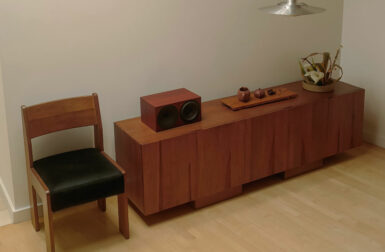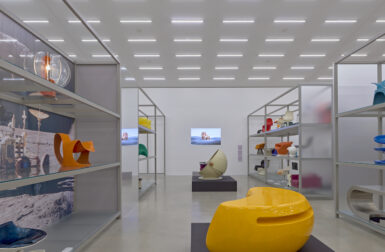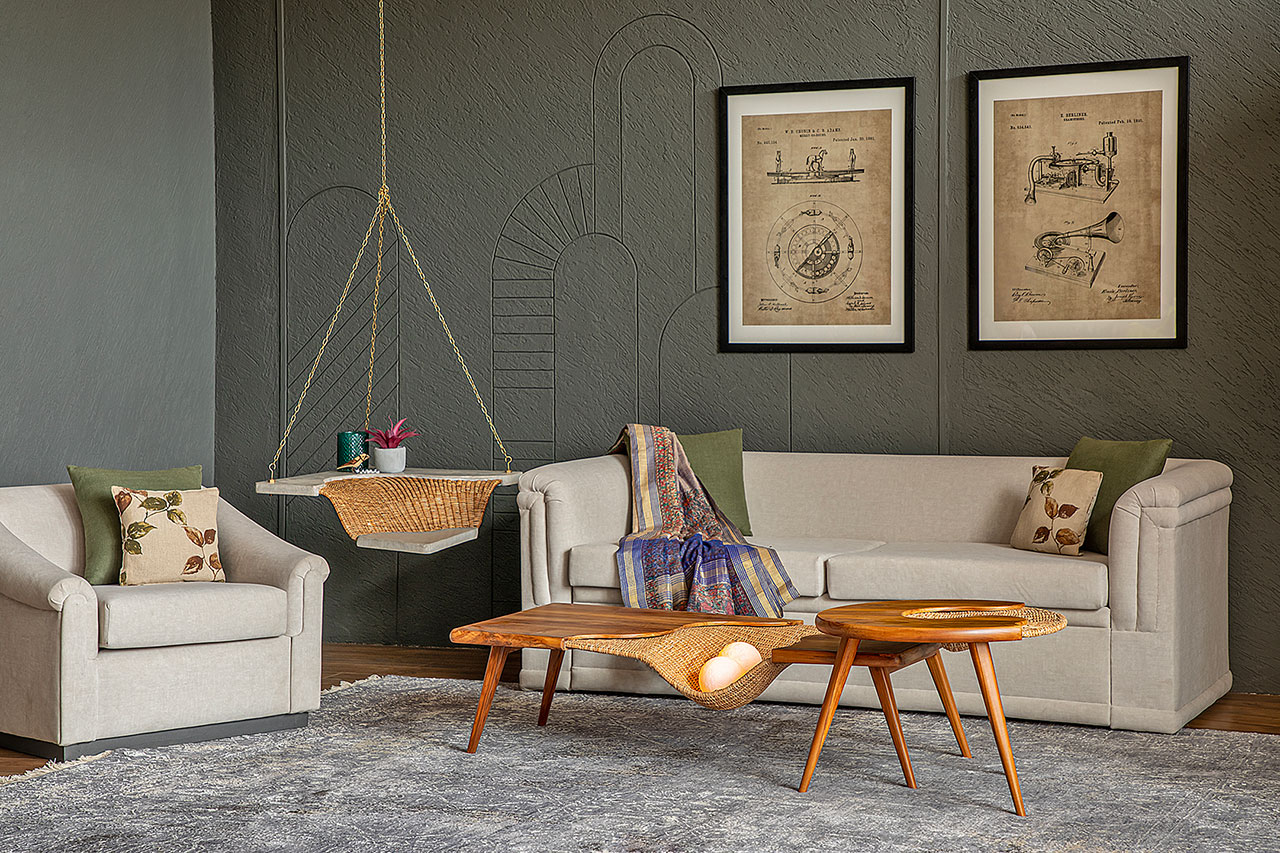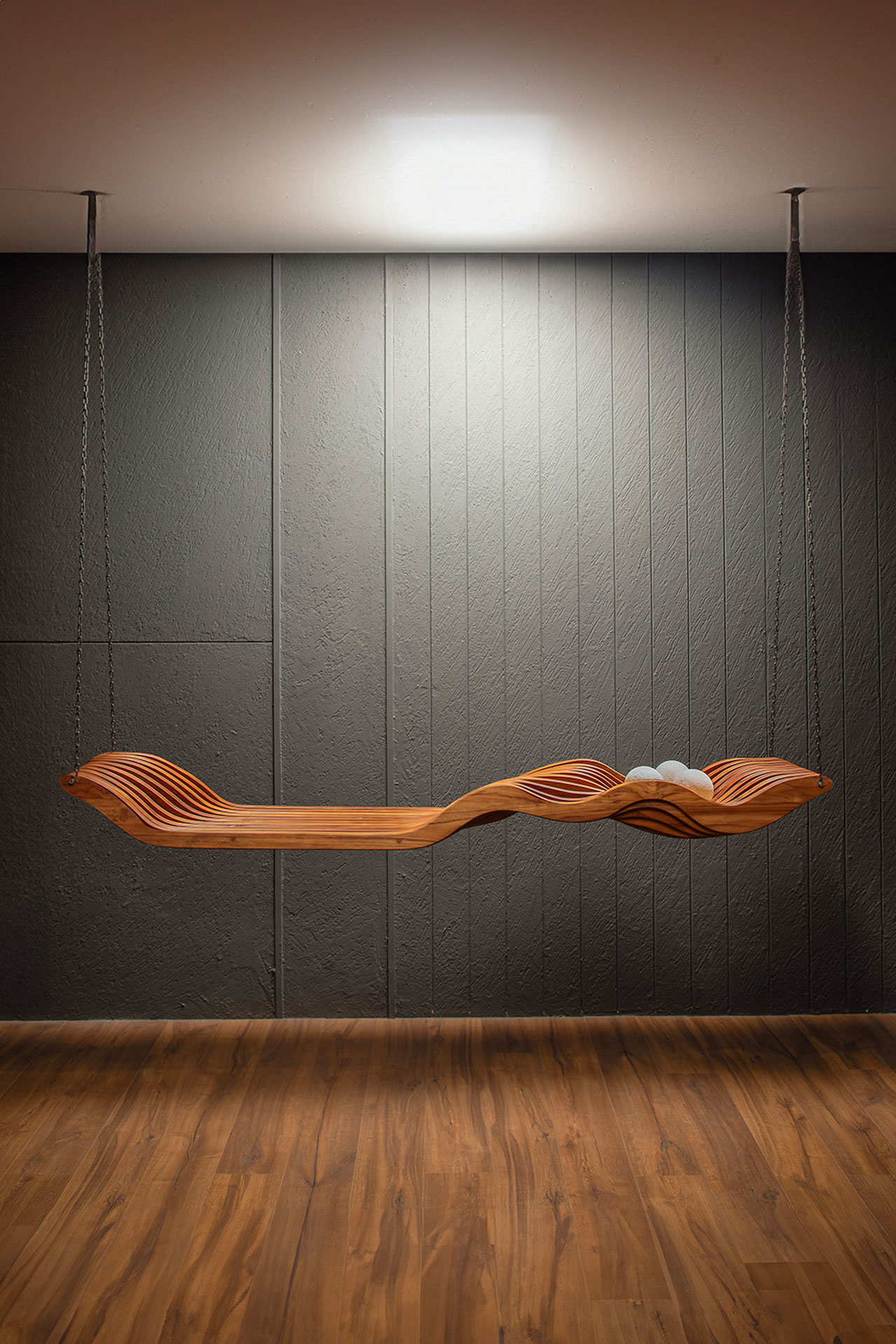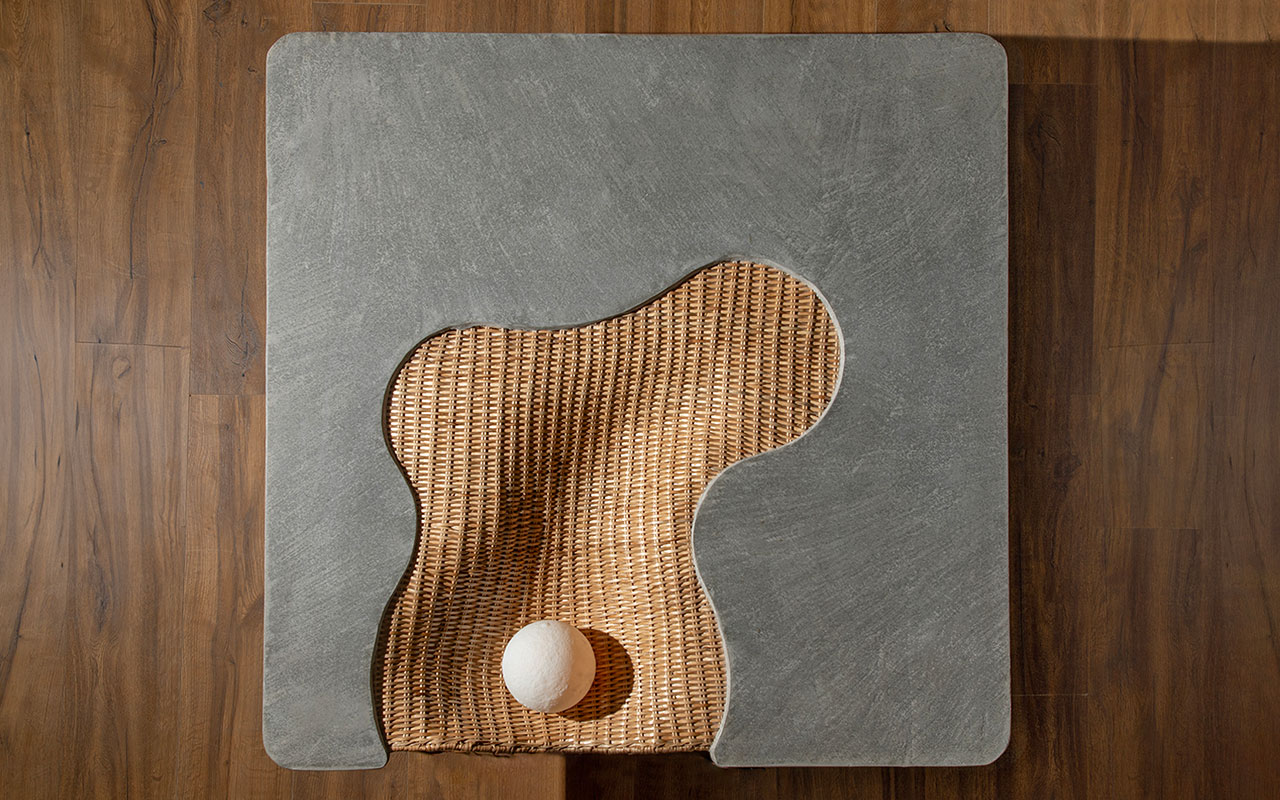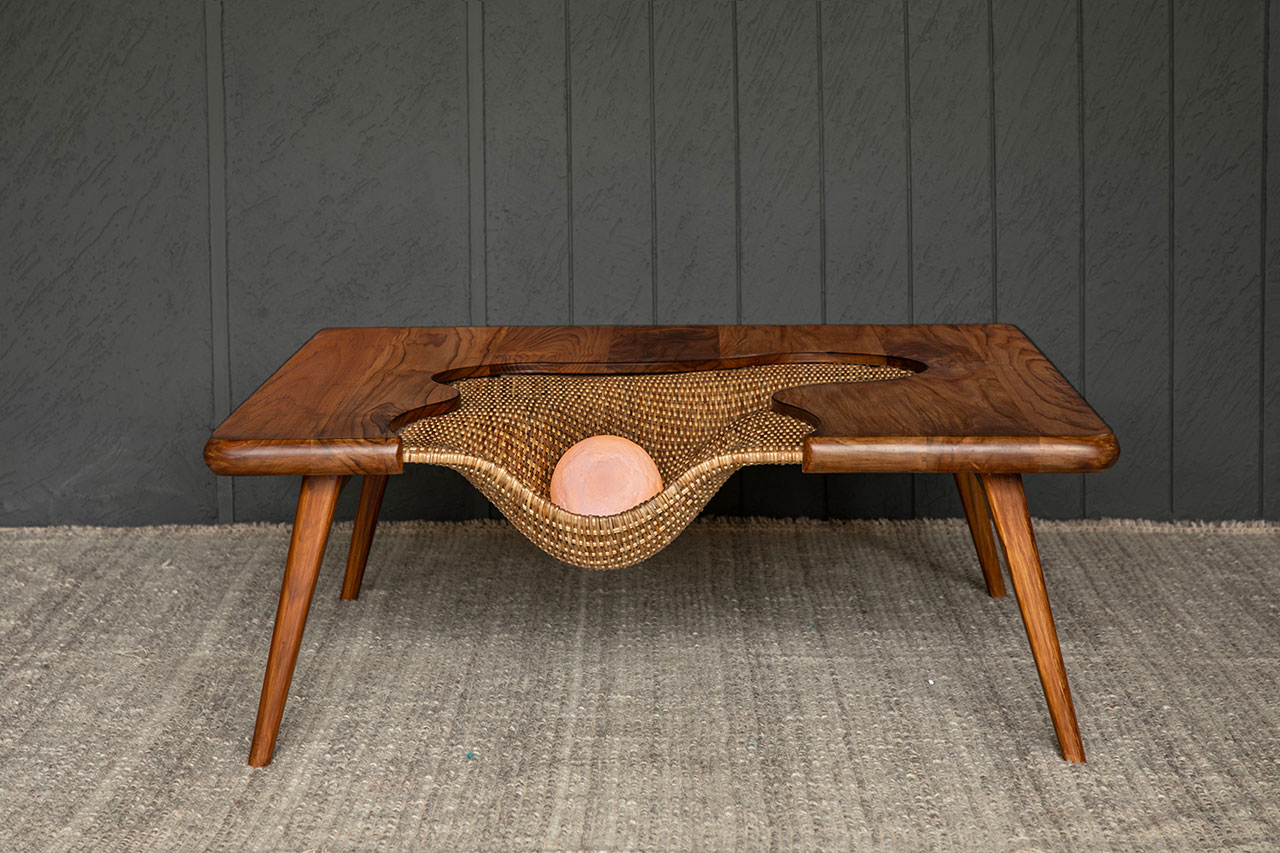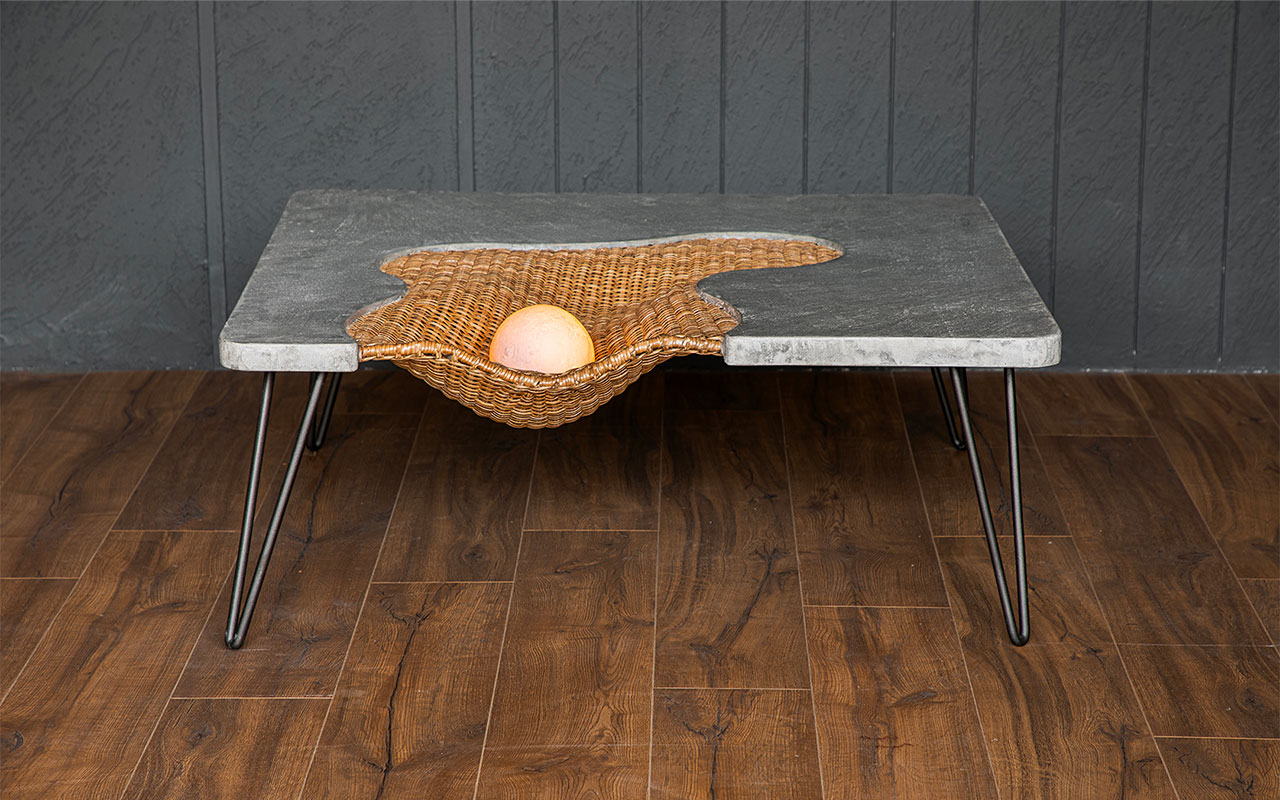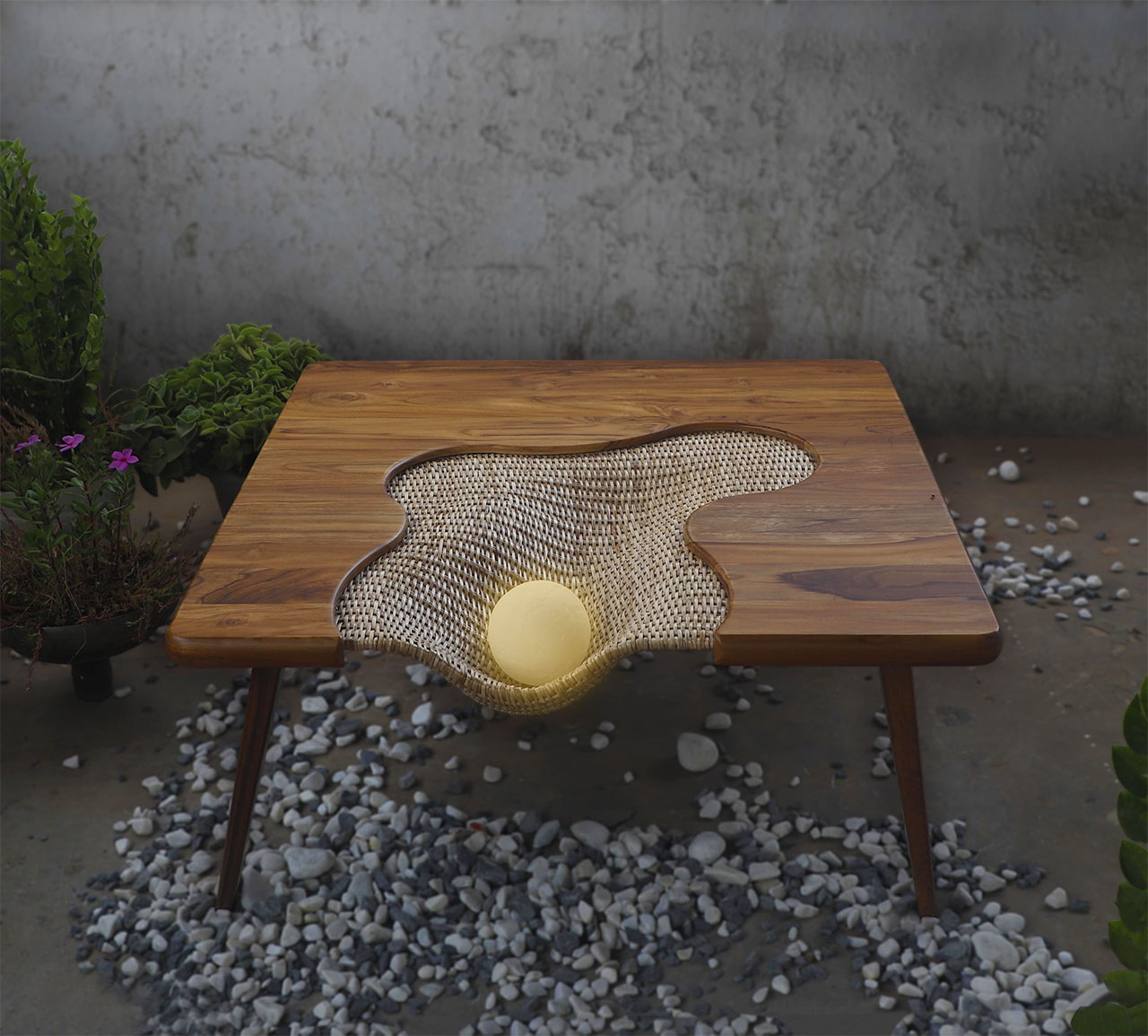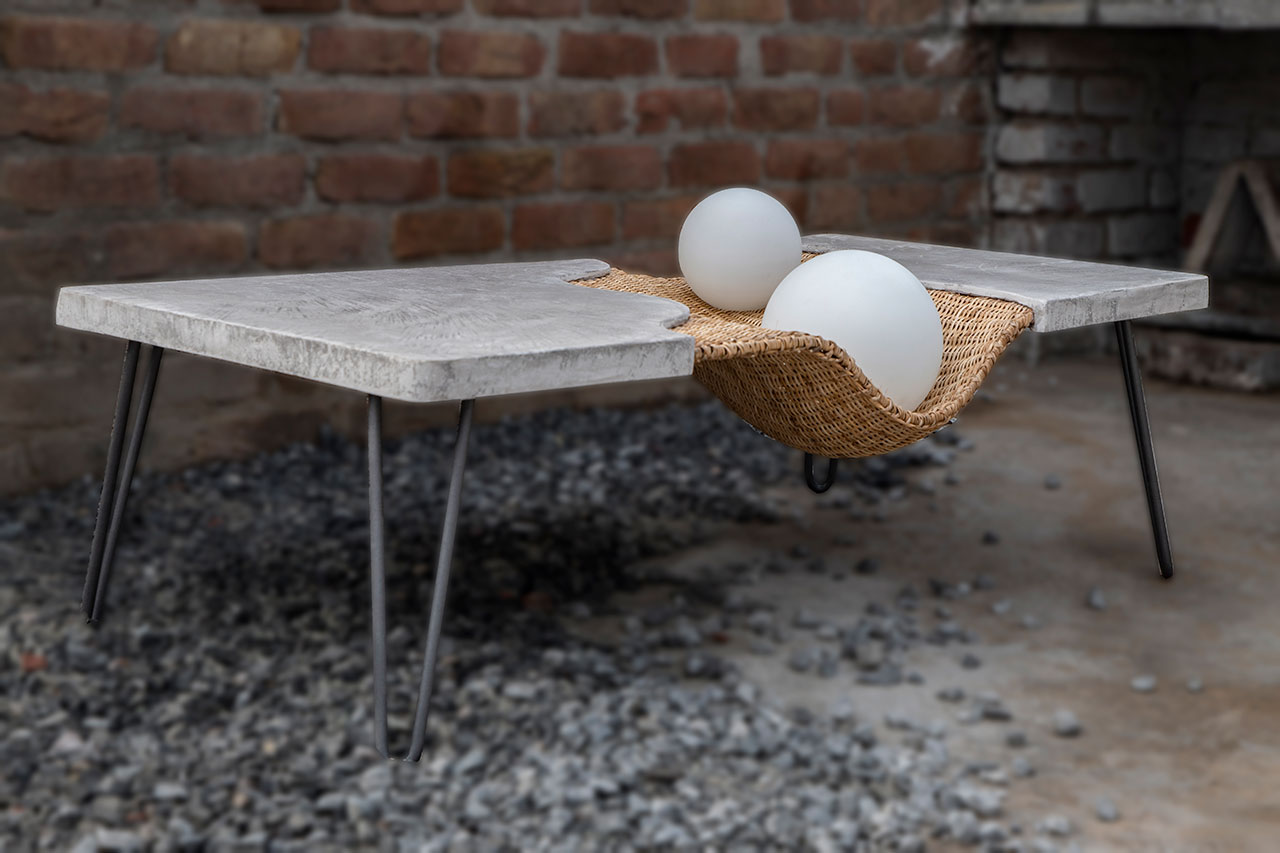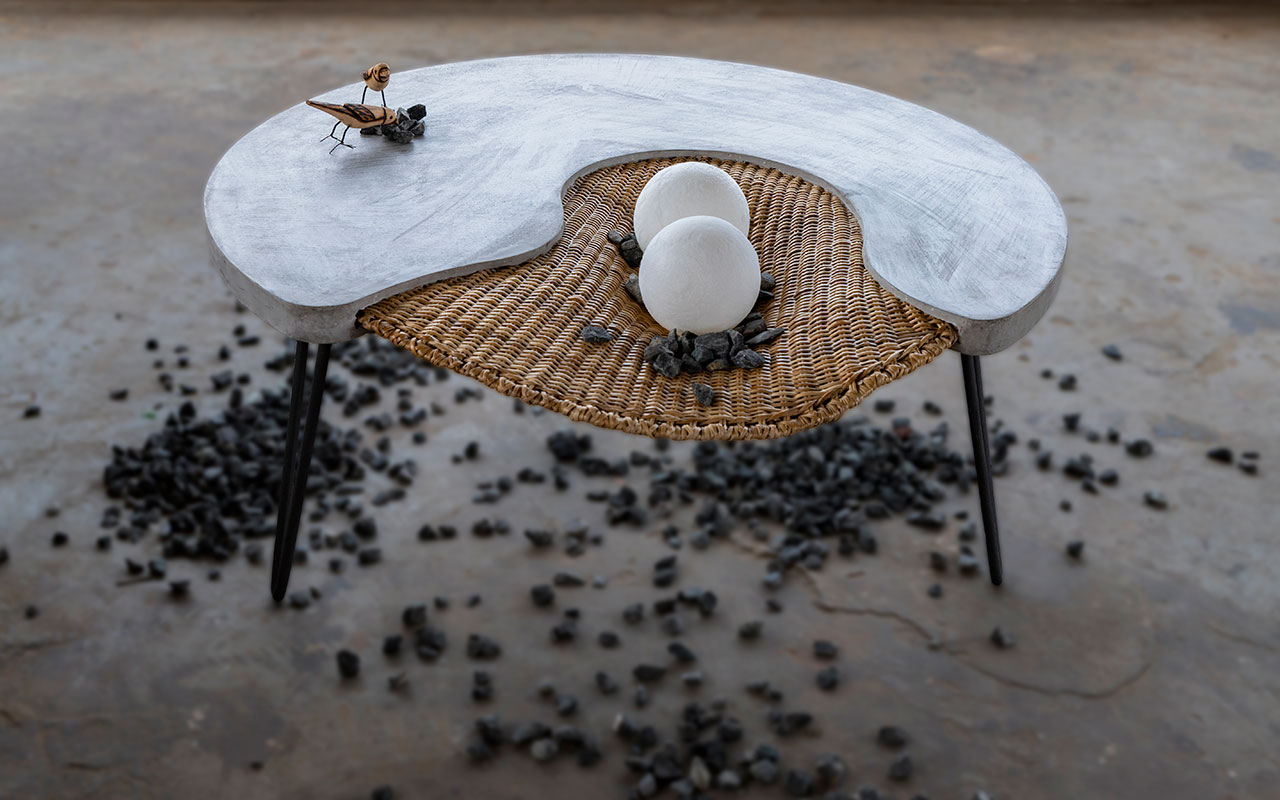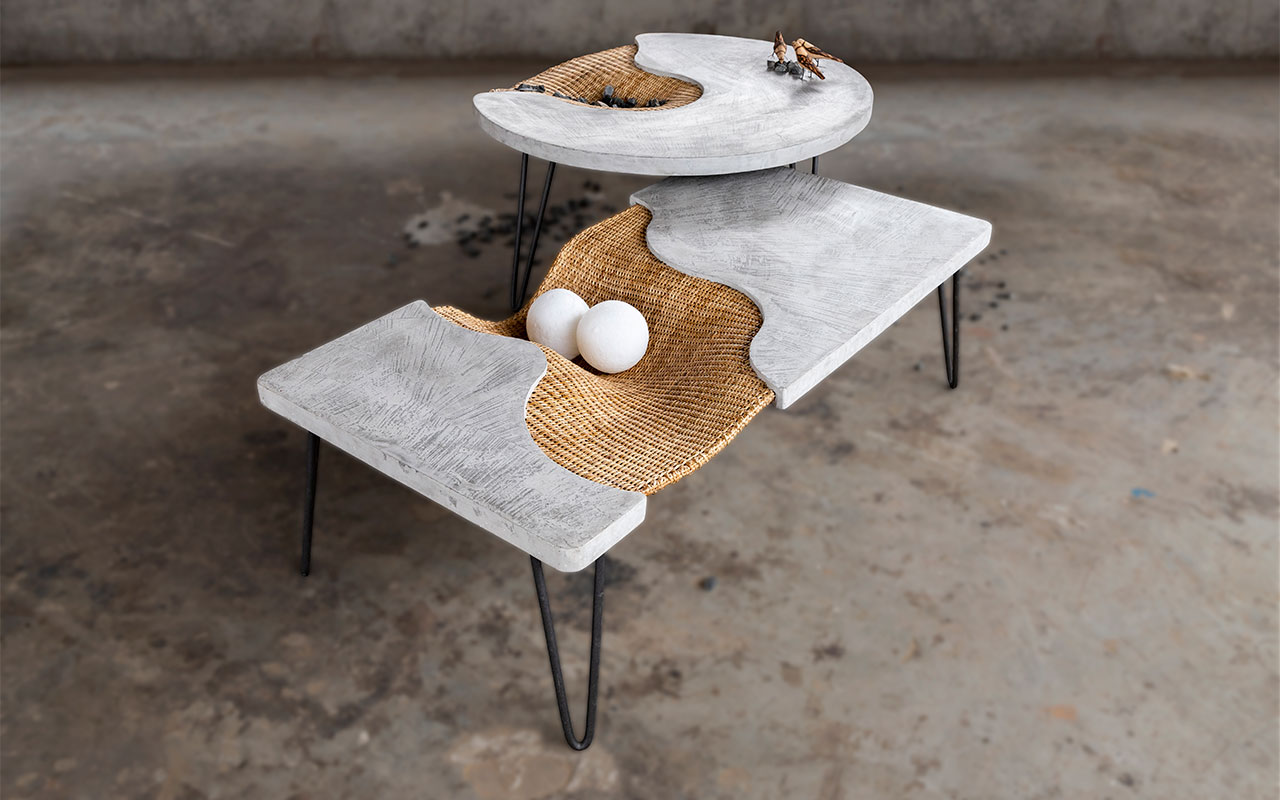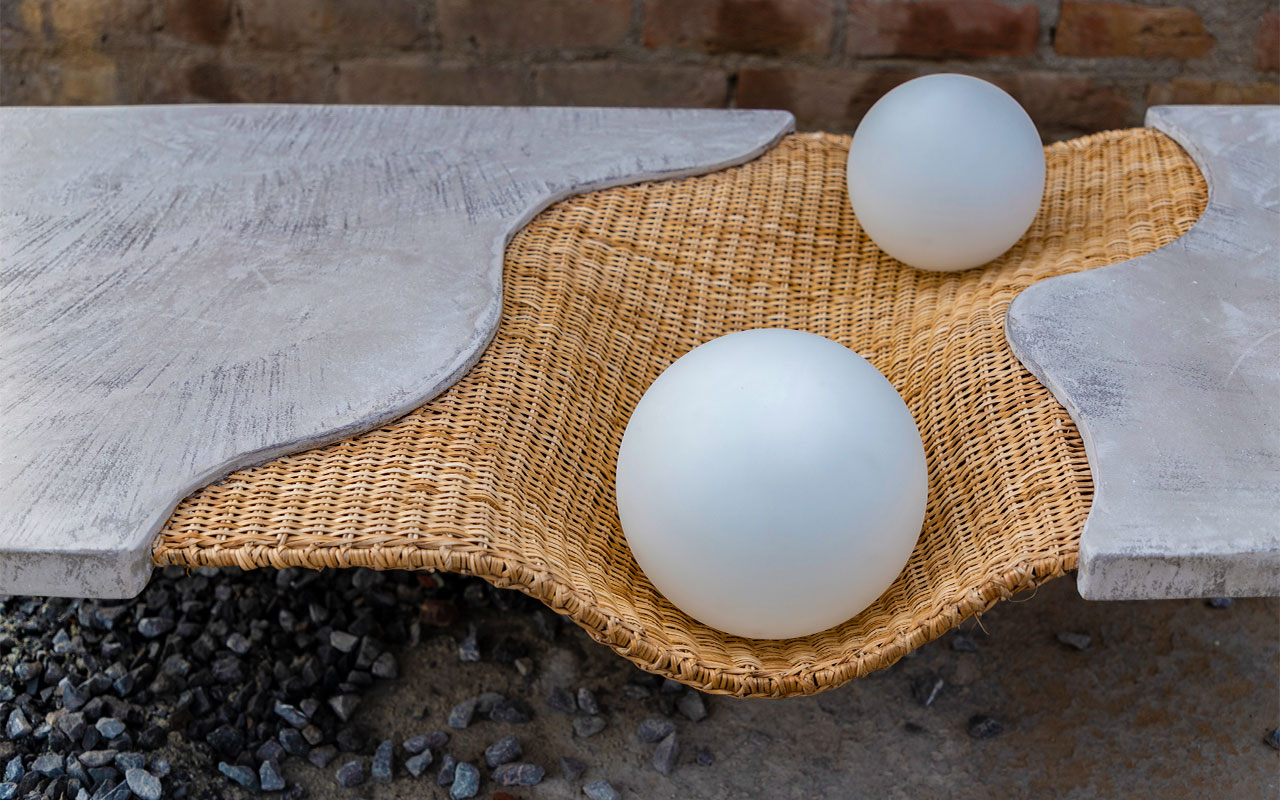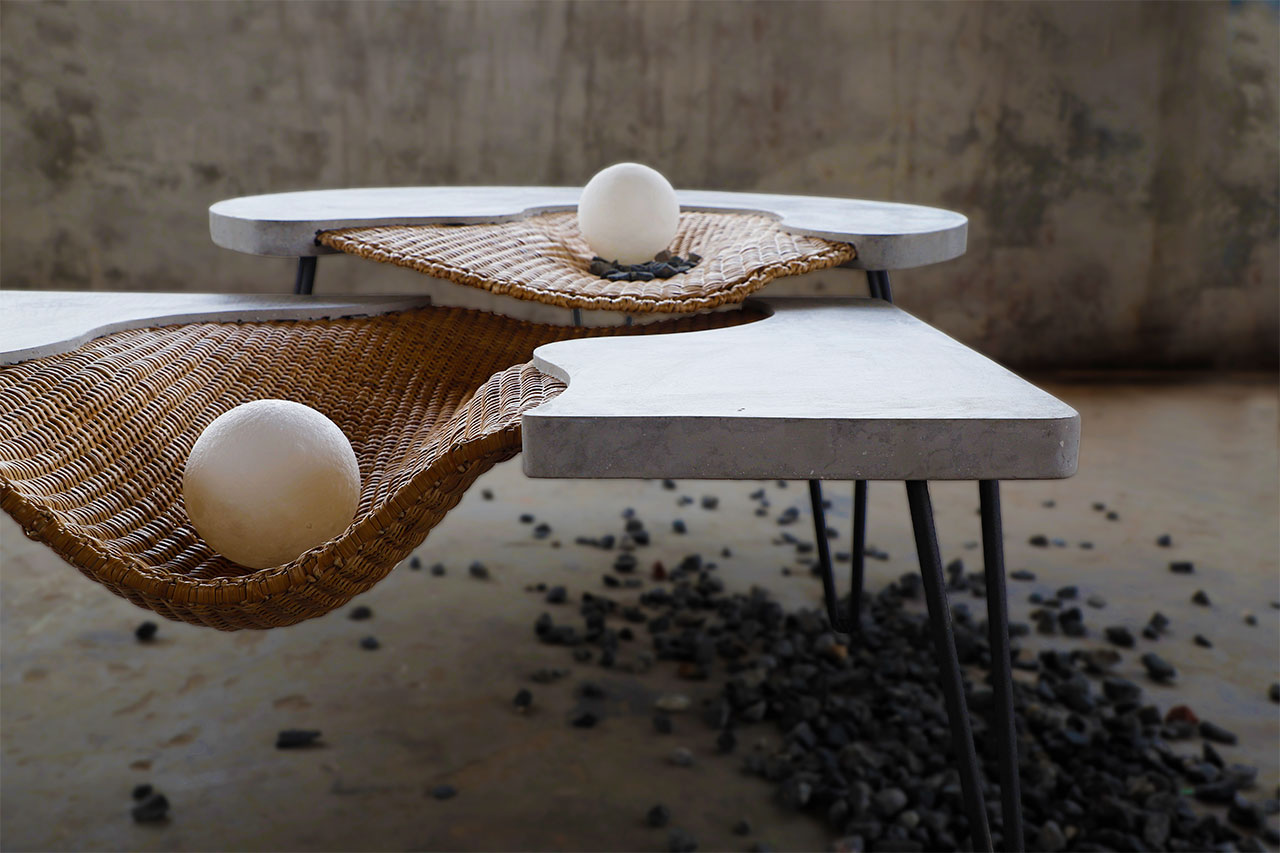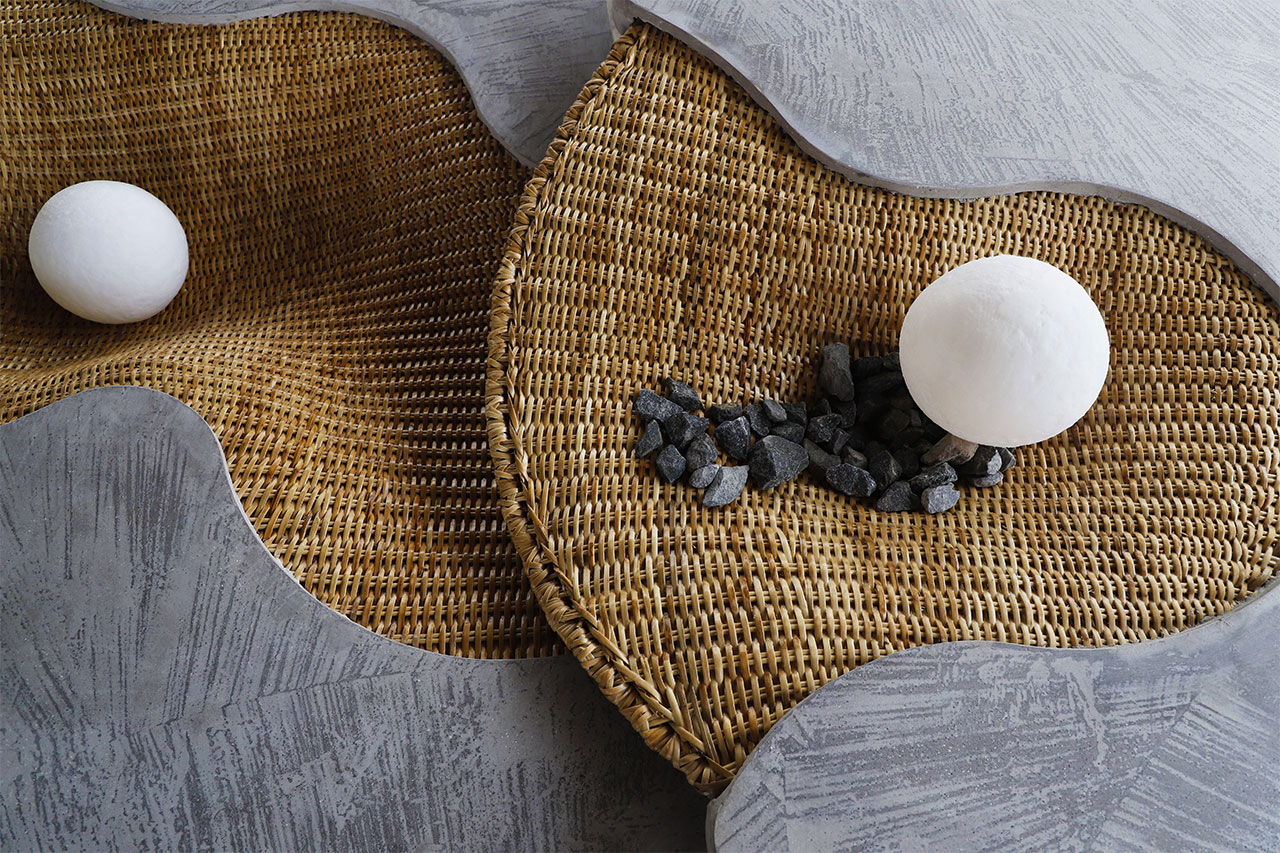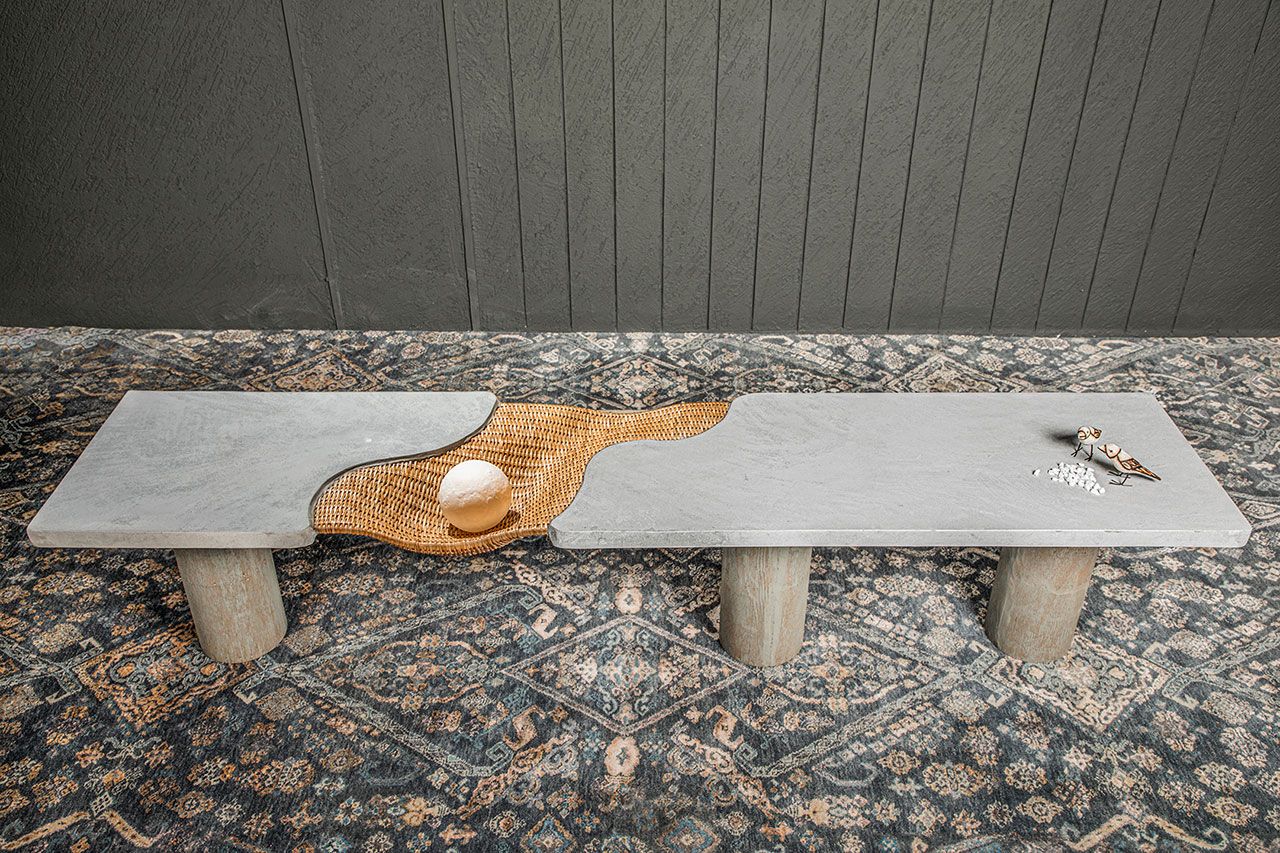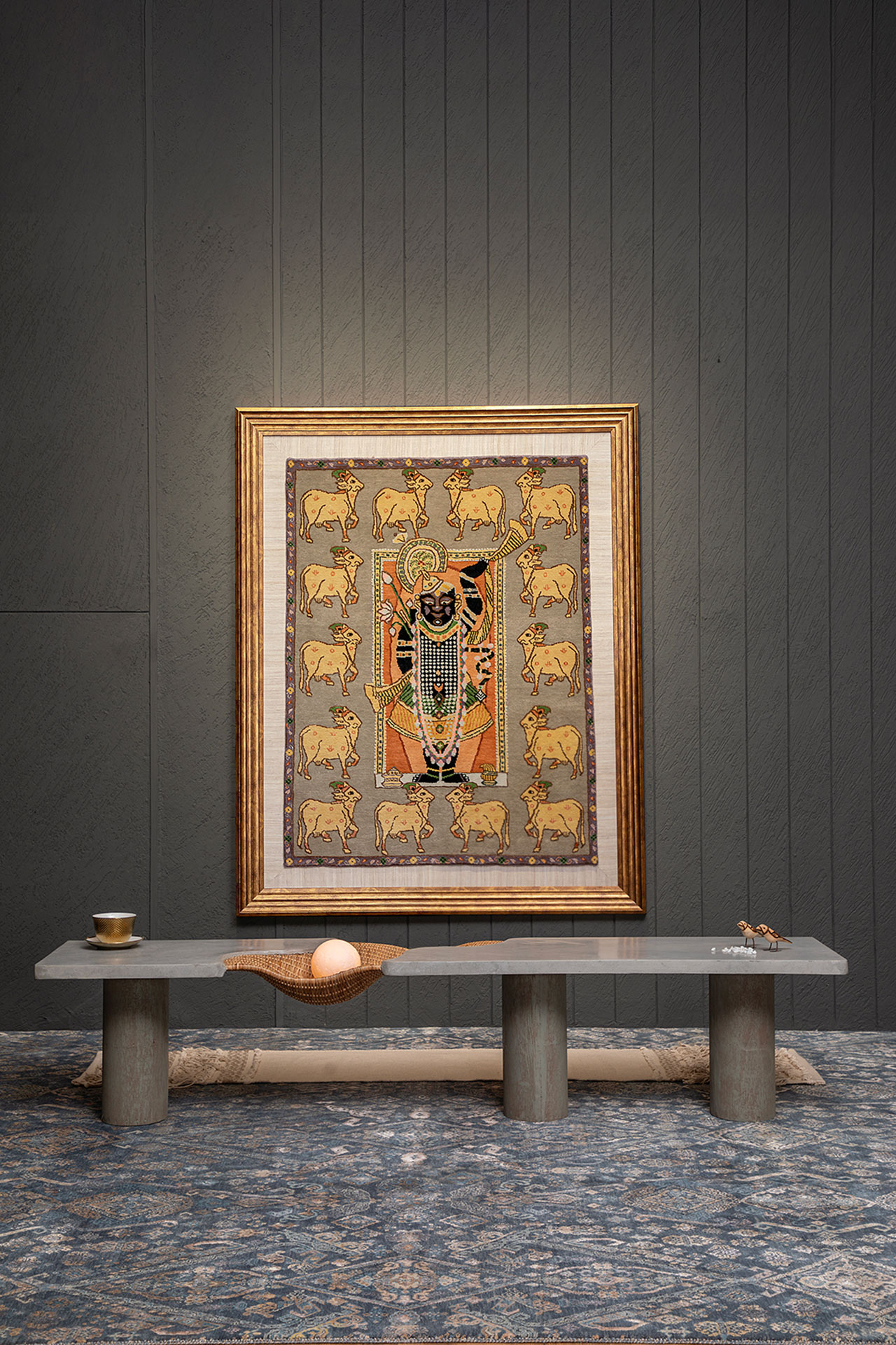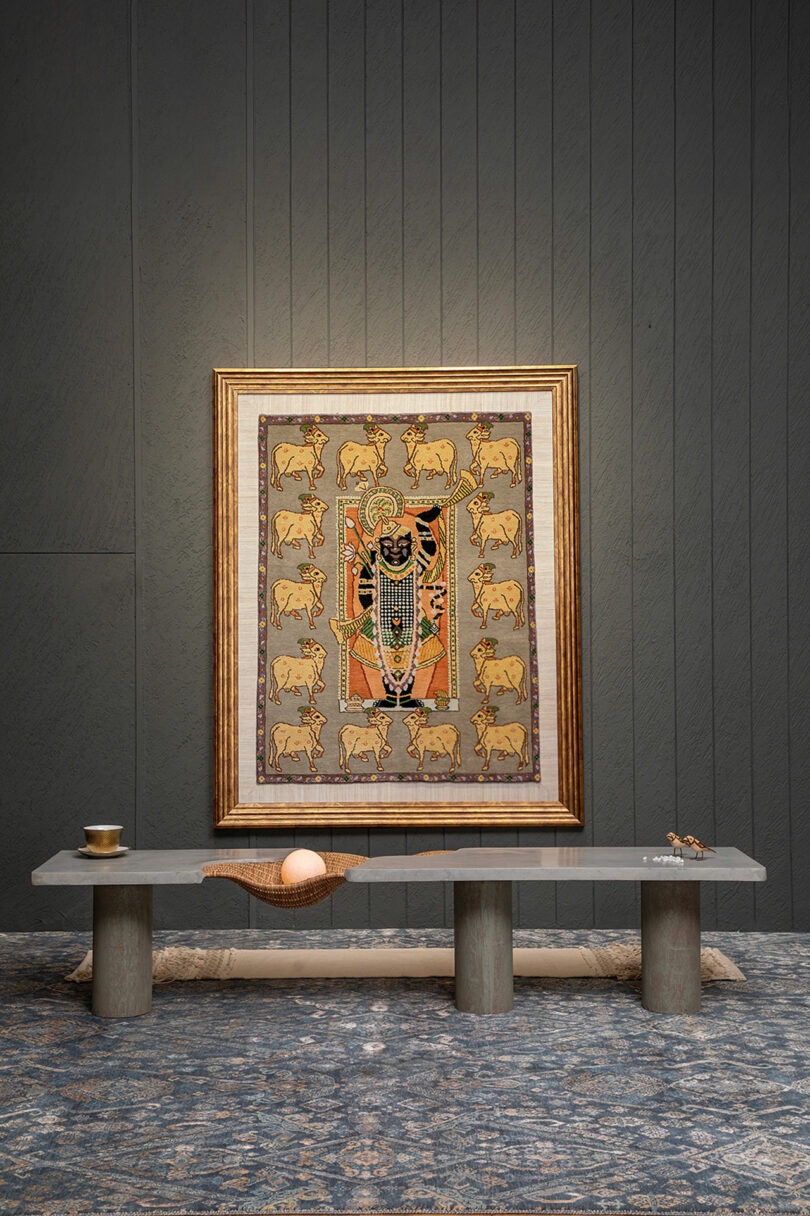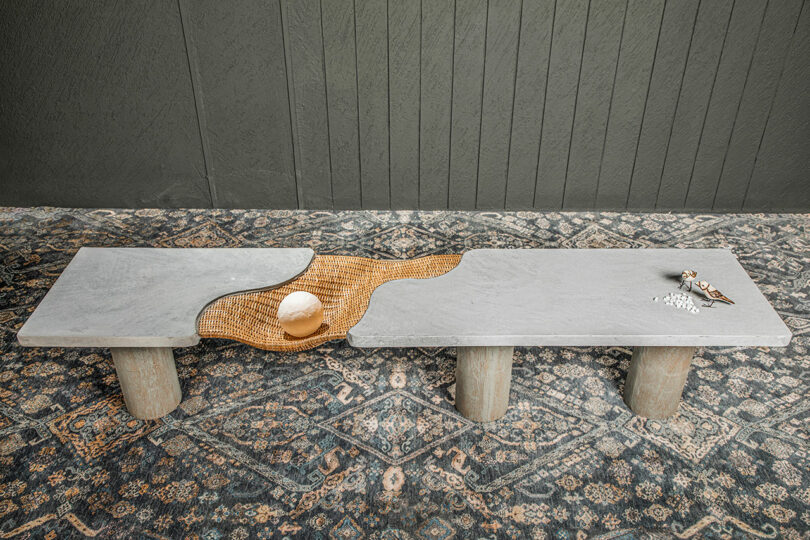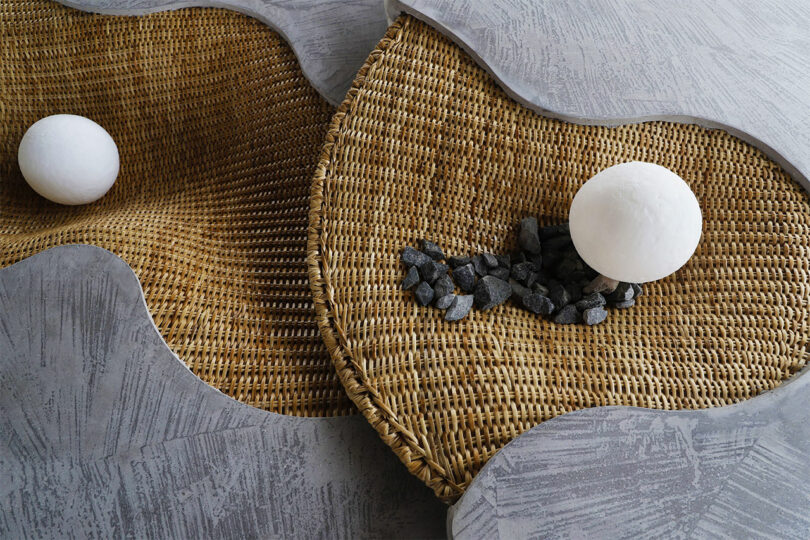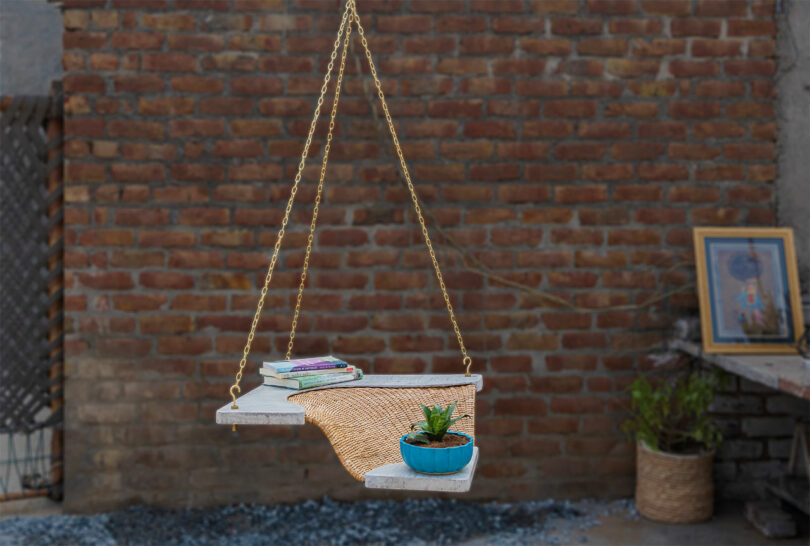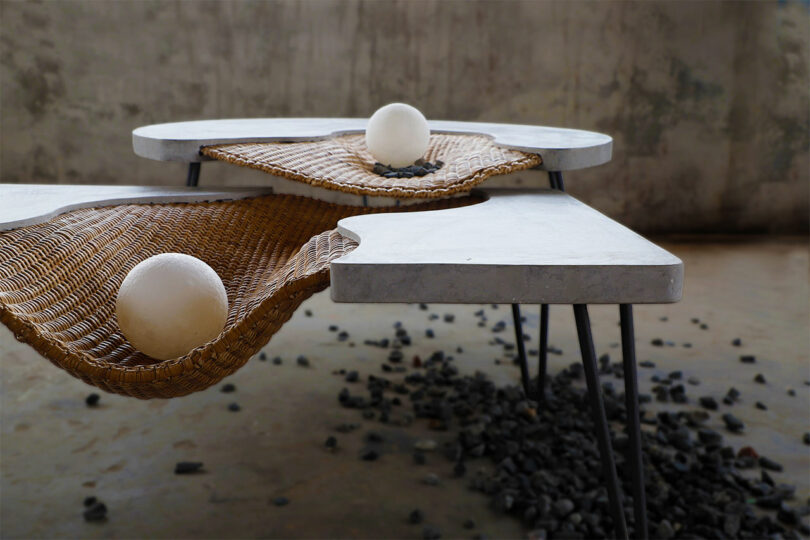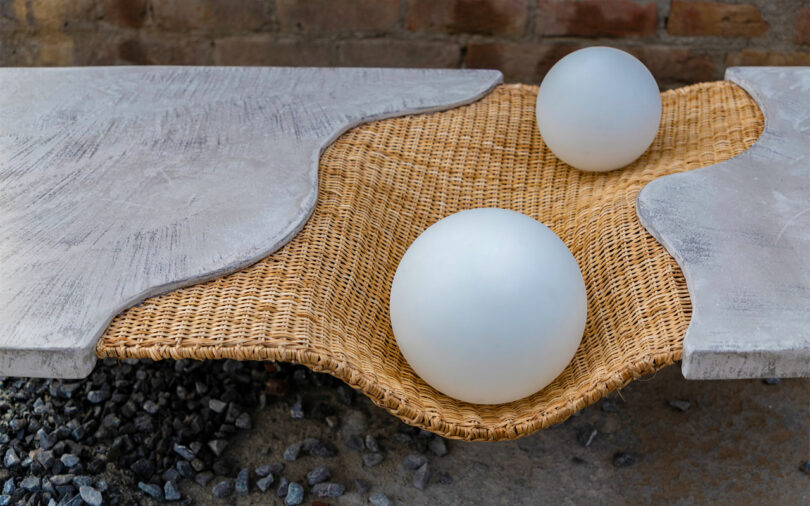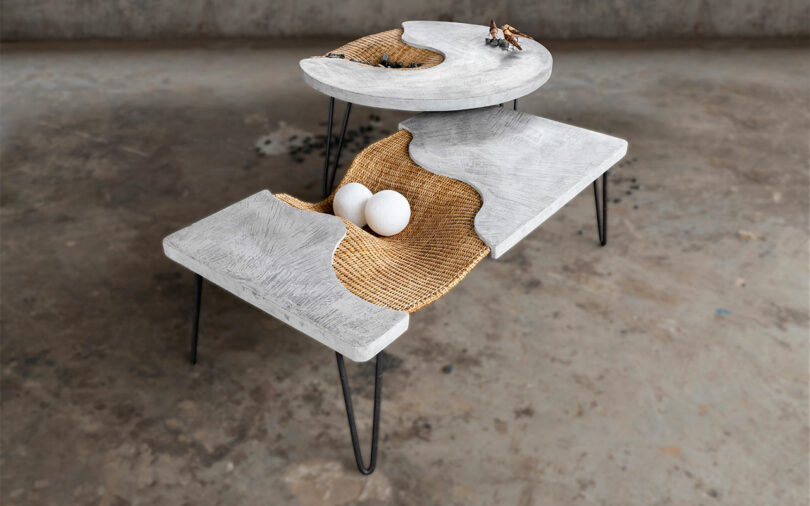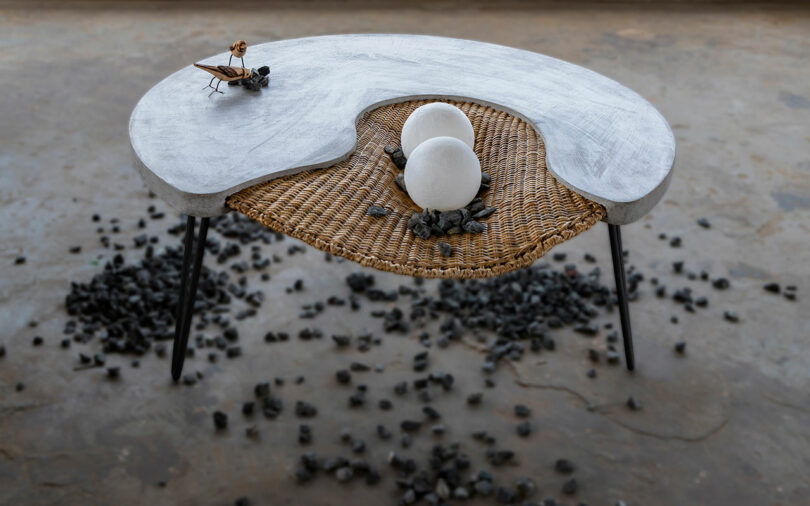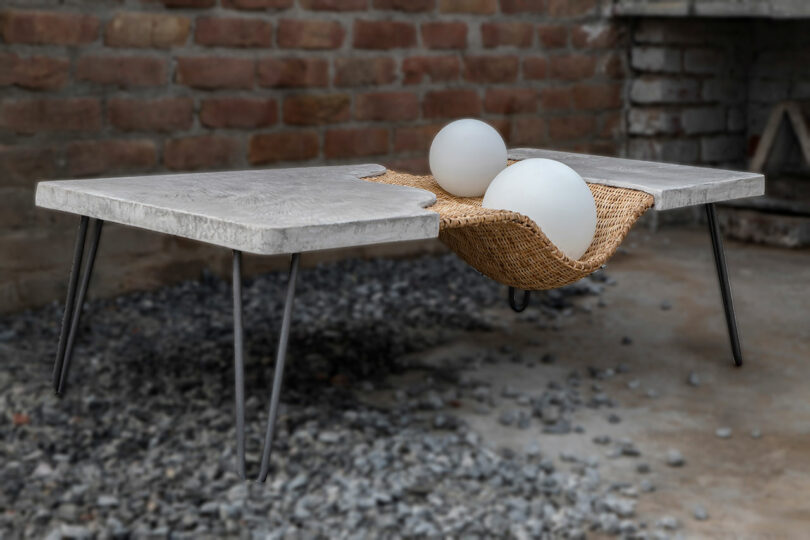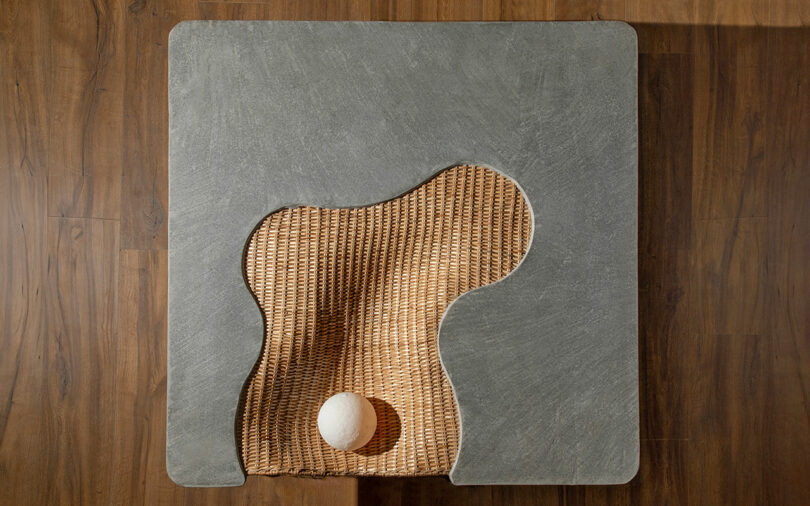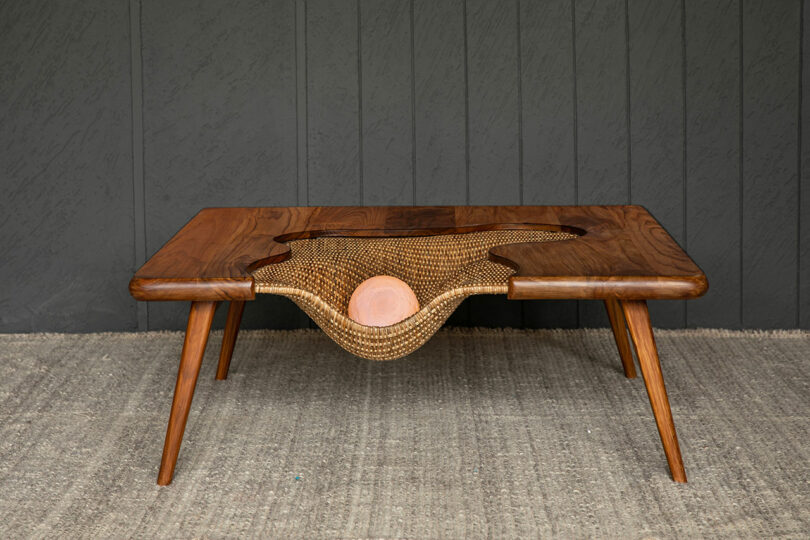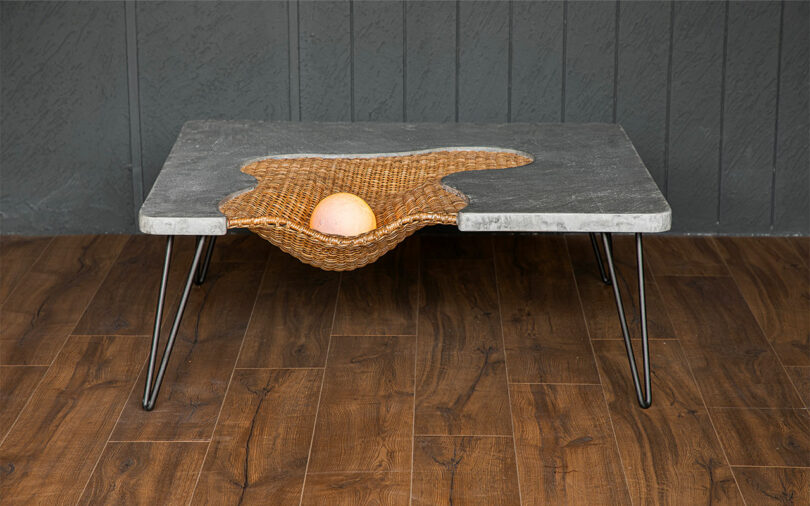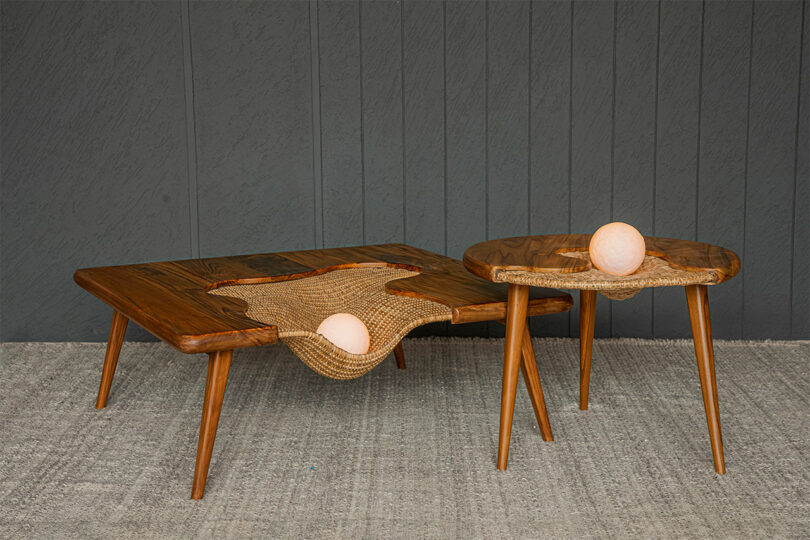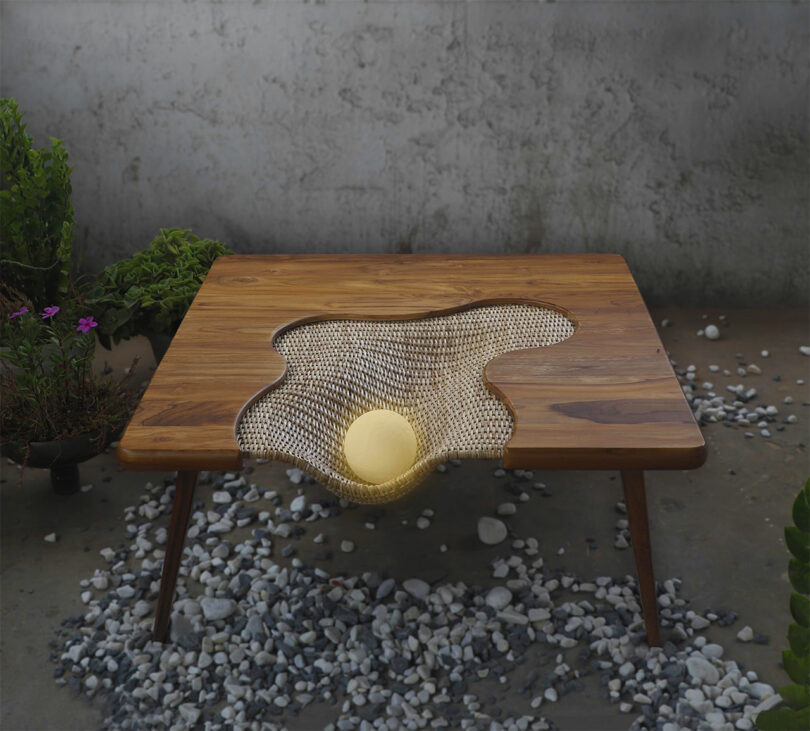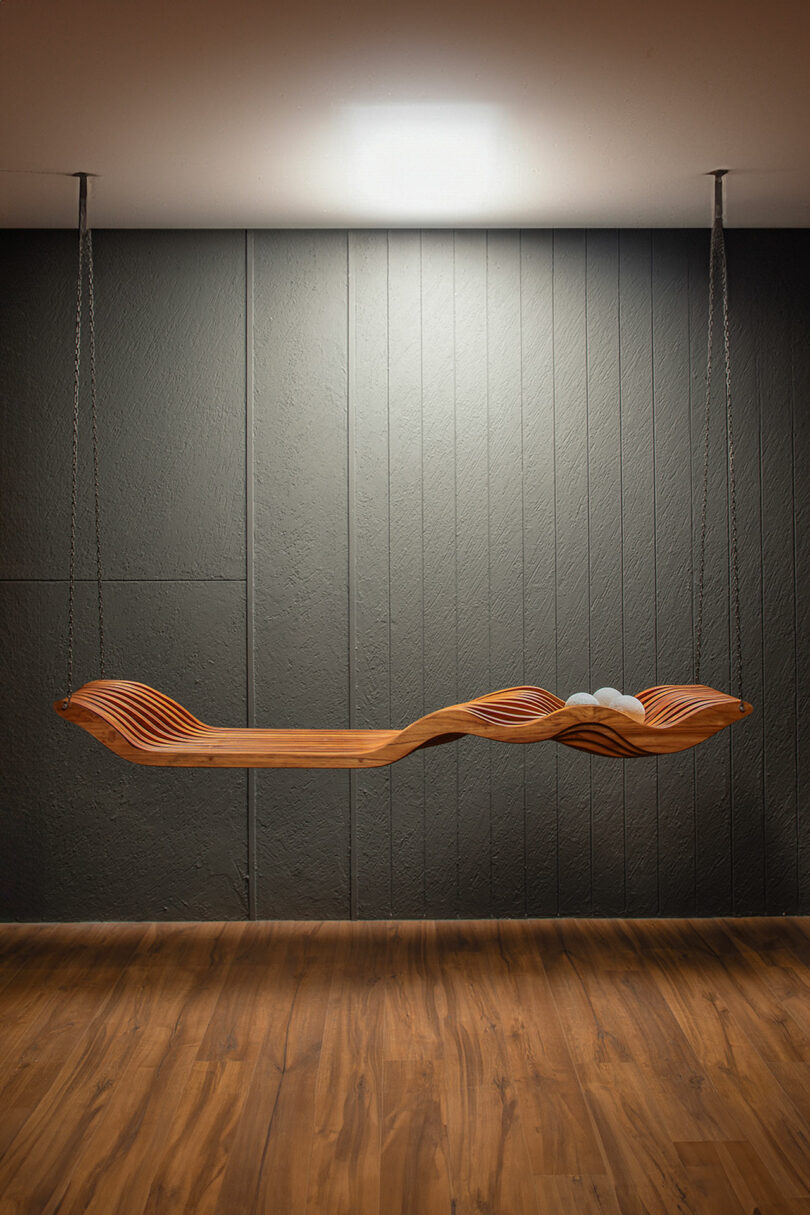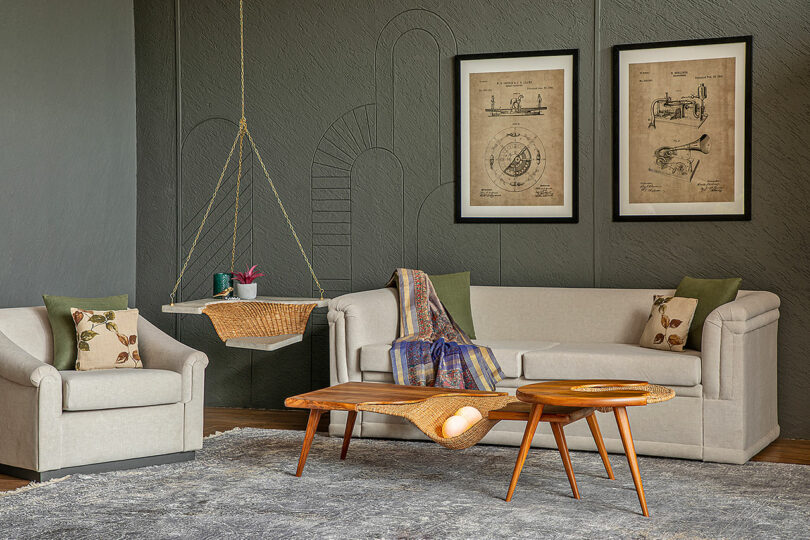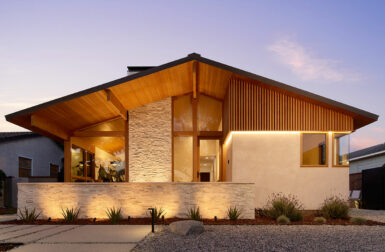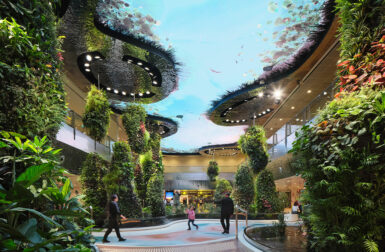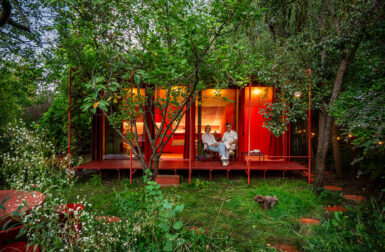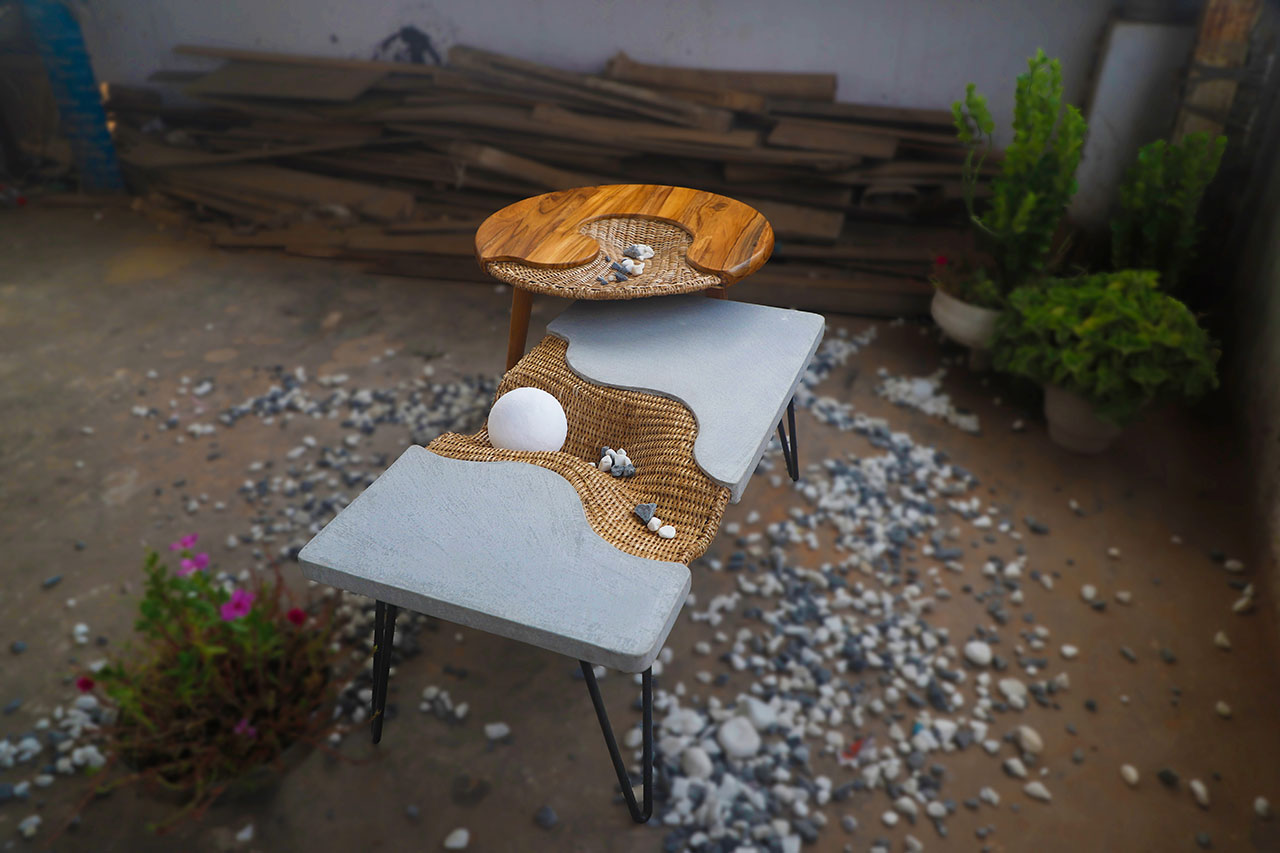
Form yields function in the Lehar and Namiti table series by Delhi-based design studio Vakr, positioning the new collections somewhere between structural art and home furnishings. The two share contour language derived from Hindi and Sanskrit words meaning wave and fusion, respectively.
Inspired by the dynamics of structures under pressure, the furnitures’ solid elements – Lehar in concrete and Namiti of reclaimed wood – appear broken apart to reveal a rattan structure that holds them in visual tension. Each series comprises nearly ten pieces including various geometric coffee tables, consoles, wall shelves, and suspended surfaces.
While the forms are reminiscent of the architect Antoni Gaudi’s hanging chain models, Vakr’s unique construction technique and material palette are a proprietary blend. “The shape of the pieces was the biggest challenge,” says founder Devyani Gupta. “Maintaining the balance overall is integral while combining concrete with rattan. We dropped weights along the curve of the tensile parts to achieve the smoothness of the visible form. Afterwards, the design was further refined using computational methods.”
The rattan is sourced from Assam, a state in northeastern India, while the concrete composition is manufactured in-house. In addition to supporting indigenous arts and crafts, Vakr considers their local impact opting to use biodegradable materials for all prototypes and repurposing material with the goal to move towards a zero-waste policy. And an amalgam of residual foam and reusable wood are used in place of virgin packaging. Vakr delivers collectible design and contemporary statement pieces that prompt greater conversation about India’s craft culture while addressing the industry’s need for ecological responsibility.
For more information on the Lehar and Namiti series, visit vakrstudio.com.
Photography by Tejas Shah courtesy of Vakr Design Studio.
